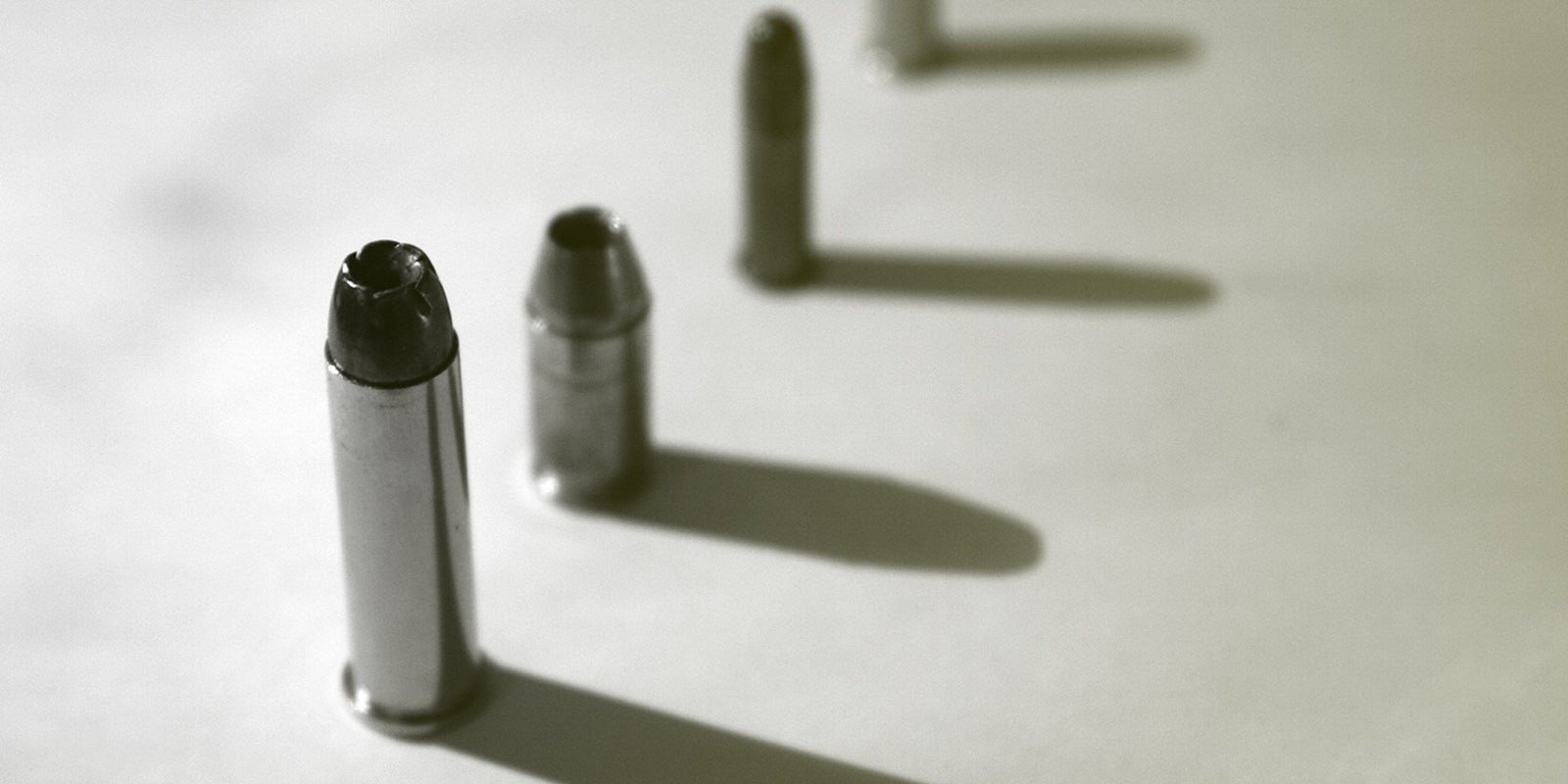The executive actions President Barack Obama announced Tuesday to reduce gun violence included an obligatory bid to combat mental illness.
Obama cited a rule pushing health care providers to report the names of mentally ill patients to an automated FBI firearms background check system. He also proposed $500 million in new spending on mental health treatment.
The president might as well have thrown in a pledge to fight rabies, pass interference or traffic jams. Those are reasonable goals, but achieving them also wouldn’t stop many people from shooting each other.
Research on the link between mental illness and gun violence has found that people with diagnosed mental illness are a tiny bit – perhaps 4 percent – more likely to commit violent acts than others.
Research on the link between mental illness and gun violence has found that people with diagnosed mental illness are a tiny bit – perhaps 4 percent – more likely to commit violent acts than others.
That’s not much. Poverty, drug or alcohol abuse and being male are each far more substantial predictors of a risk of violence. The best indicators that someone is likely to engage in gun violence are more obvious. A history of violence and, yes, access to guns are bigger risk factors.
Yet even our legal system perpetuates the myth that crazy people are prone to gun violence. The 1968 Gun Control Act barred anyone ever committed to a mental hospital or “adjudicated as a mental defective” from buying a gun. (It also bars felons, drug abusers, illegal immigrants and others. Because the law was passed five years after President John F. Kennedy was assassinated by Lee Harvey Oswald, who was dishonorably discharged from the Marines and had renounced his citizenship, it also bars people dishonorably discharged from the military and those who renounced citizenship from buying firearms.)
The association of mental illness and gun violence is also tied to the disproportionate percentage of mass shootings perpetrators who seem mentally troubled. The shootings strike us as insane because they involve people shooting strangers. Those crimes seem more irrational than the standard motivated homicides. Most murders are not nuts, just stupid.
The false belief that mental illness leads to gun violence is part of the reason that Republicans, and some Democrats, eager to not talk about gun regulations, in effect urge Obama to cure mental illness before strengthening background checks.
“An underlying cause of these attacks has been mental illness,” House Speaker Rep. Paul Ryan, R-Wis., said Monday. Rep. Dave Joyce, R-Ohio, tweeted Tuesday, just hours after Obama announced provisions focused on mental health:
I’ve seen firsthand how such a tragedy can rock a community.
— Dave Joyce (@RepDaveJoyce) January 5, 2016
The focus needs to be on mental health.
“We should build, like, institutions for people that are sickos,” Republican presidential frontrunner Donald Trump said Sunday. “We have sickos all over the place.”
Putting aside the current existence of mental health institutions, one problem with such claims is that mass shootings, while they get a large percentage of media attention, make up a small fraction of fatal shootings in the U.S. In 2012, shooting incidents that included four or more deaths, among them the murder of 20 children and six adults at Sandy Hook Elementary School in Newtown, Conn., made up less than 1 percent of gun deaths in the country.
Assuming the mentally ill are violent—even if you don’t call them “sickos”—insults and stigmatizes tens of millions of Americans who are as harmless, on balance, as any other group. It only adds to the burdens of people already struggling to earn livelihoods and the basic dignity most people take for granted.
It might seem obvious, and thus not notable, that, as Obama charged Tuesday, some members of Congress “rush to blame mental illness for mass shootings as a way of avoiding action on guns.”
https://twitter.com/RepTimMurphy/status/684468326119124992
Do POTUS’s tears flow from frustration with his inability to build consensus on mental health and violence solutions? We can show him a way.
— Senator John Cornyn (@JohnCornyn) January 6, 2016
But the transparency of this ploy should not excuse lawmakers who try it from judgement. They cynically single out a politically weak group in a bid to dodge responsibility for taking a stance they fear will offend the powerful. If anything is cowardice, that is.
Insulting and stigmatizing tens of millions of Americans who are as harmless, on balance, as any other group, doesn’t help. It only adds to the burdens of people already struggling to earn livelihoods and the basic dignity most people take for granted.
Picking on the mentally ill also makes for bad gun policy. It may appear intuitive that because many mass shooters seem like lunatics, cracking down on lunies will prevent mass shootings. But while many mass shooters may be mentally ill, every prominent mass shooter in American history, with the exception of Tashfeen Malik, one of the perpetrators in the last month’s San Bernardino shooting, shares one more obvious trait: They are male.
The same logic that calls for addressing gun violence by focusing on mentally illness dictates that we should first focus on the underlying cause: Armed dudes.
So the next time someone talks about “keeping guns out of the hands of the mentally ill,” a reasonable response is to agree. Then urge we first focus on keeping guns out of the hands of men who use them to commit crimes.
Dan Friedman has worked as senior Washington correspondent for the New York Daily News and reported on the Senate and congressional oversight for National Journal. He started his reporting career in Boston. He is a graduate of the University of Pennsylvania and holds a Masters in International Relations from the London School of Economics.
Image via Richard Elzey / Flickr (CC by 2.0) | Remix by Max Fleishman


